News
The Future of Medical Technology: Exploring Touchscreen Solutions to Enhance Efficiency
The Future of Medical Technology: Exploring touchscreen Solutions to Enhance Efficiency
Table of Contents
-
Introduction
-
The Evolution of Medical Technology
-
Understanding touchscreen Technology
-
Five Key Benefits of Medical touchscreen Solutions
-
Enhancing Patient Care Through Touch Interfaces
-
Optimizing Operational Efficiency in Healthcare Facilities
-
Future Innovations in Touch Panel Solutions
-
Implementation Challenges and Strategic Considerations
-
Conclusion: Advancing Toward Smarter, More Efficient Healthcare
-
Frequently Asked Questions (FAQ)
1. Introduction
As healthcare technology continues to advance, hospitals, clinics, and care facilities are increasingly in need of efficient and intuitive human-machine interfaces. Among the many digital innovations, touchscreen solutions have emerged as a powerful tool driving the modernization of medical systems and the improvement of patient care.
This article explores how touchscreen interfaces are revolutionizing the medical landscape—from streamlining workflows to enhancing patient engagement—and outlines how they are helping shape the future of intelligent healthcare environments.
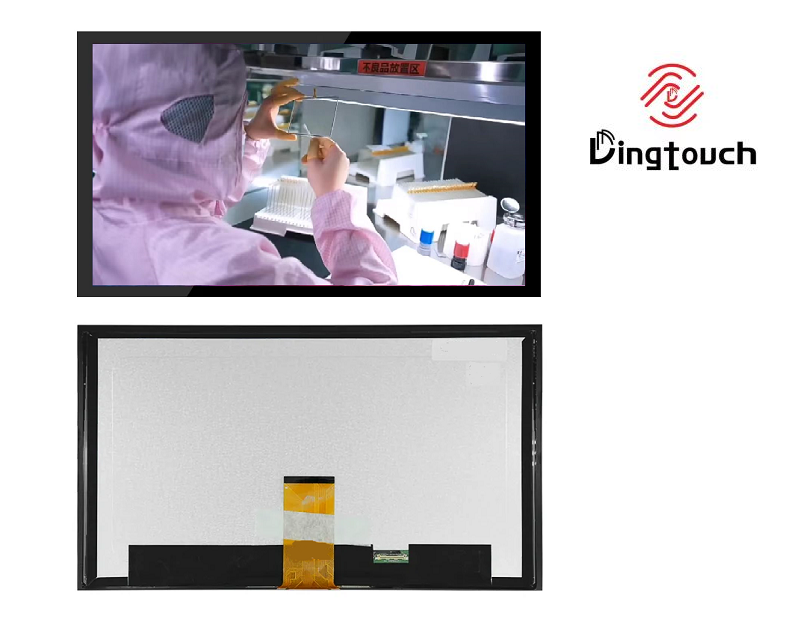 2. The Evolution of Medical Technology
2. The Evolution of Medical Technology
Over the past few decades, medical technology has undergone a dramatic transformation. From rudimentary analog devices to today’s intelligent systems powered by AI and IoT, healthcare innovation has redefined diagnosis, treatment, and care delivery.
Key developments that have paved the way for touchscreen technology include:
-
The rise of Electronic Health Records (EHRs), requiring seamless data access and entry
-
Telemedicine, which enables remote consultations and virtual care
-
The expansion of automated medical systems, demanding user-friendly control interfaces
touchscreens are now a core interface component, bridging advanced digital systems and real-world clinical applications.
3. Understanding touchscreen Technology
touchscreen technologies used in medical environments include:
-
Projected Capacitive (PCAP): Offers multi-touch, high sensitivity, and is ideal for imaging, surgical control, and diagnostic terminals
-
Resistive Touch: Works with gloved fingers or styluses, suited for sterile or rugged conditions
-
Infrared and Optical Touch: Common in large-format or public-access healthcare kiosks
These technologies are embedded in various medical applications such as bedside terminals, surgical displays, mobile carts, patient check-in systems, and health information kiosks—enhancing visibility and operational interactivity.
4. Five Key Benefits of Medical touchscreen Solutions
1. Improved User Experience
touchscreen interfaces are intuitive and reduce staff training time. Medical professionals and patients alike can operate devices with minimal learning curve.
2. Enhanced Accessibility
With features like large icons, voice controls, and adjustable contrast, touchscreens can be tailored to accommodate elderly users or those with visual or physical impairments.
3. Greater Efficiency
Quick access to patient records, imaging, or medication details via touchscreen significantly shortens processing time in high-pressure environments.
4. Streamlined Communication
touchscreens enable better collaboration between healthcare teams by facilitating data sharing, real-time imaging reviews, and immediate access to treatment plans.
5. Advanced Data Integration
Touch terminals act as data collection hubs, integrating with EHR systems, PACS imaging, and lab results to support real-time updates, tracking, and analytics.
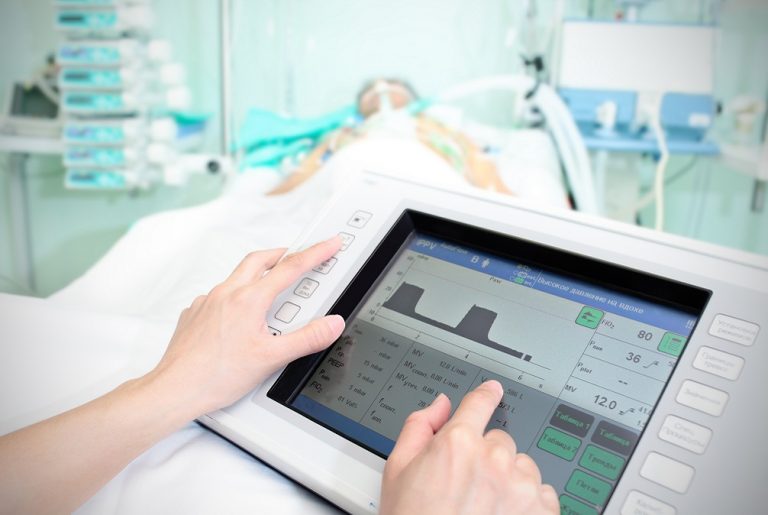 5. Enhancing Patient Care Through Touch Interfaces
5. Enhancing Patient Care Through Touch Interfaces
1. Empowering Patient Self-Service
Patients can interact with bedside terminals to view health data, call for assistance, manage meal options, or schedule follow-ups—enhancing engagement and satisfaction.
2. Supporting Telehealth Integration
touchscreen serve as accessible gateways to virtual consultations, allowing patients to connect with providers via video calls, submit information, and receive remote care.
3. Real-Time Feedback and Interaction
Clinicians can use touchscreens to deliver immediate feedback, share diagnostics, and explain procedures in a visual and interactive manner, fostering trust and clarity.
6. Optimizing Operational Efficiency in Healthcare Facilities
1. Centralized Device Control
Touch panels can serve as unified control hubs for multiple medical devices, allowing centralized operation and reducing the risk of errors.
2. Digital Inventory Management
Integrated touchscreen systems enable real-time tracking of medical supplies and equipment, helping to prevent shortages and improve resource planning.
3. Automated Scheduling
touchscreen interfaces simplify appointment booking, send reminders, and optimize patient flow—resulting in better resource utilization and reduced wait times.
7. Future Innovations in Touch Panel Solutions
1. Contactless Gesture Control
Future systems may support gesture-based input, allowing operation without physical touch—ideal for sterile operating rooms or isolation units.
2. AI Integration
touchscreen powered by Artificial Intelligence (AI) will offer predictive analytics, assist in clinical decisions, and personalize patient care pathways.
3. Augmented Reality (AR) Capabilities
AR-enhanced displays can visually present anatomy, treatment steps, or diagnostics in a 3D format—improving patient education and medical training.
4. Flexible Displays & Wearables
Next-gen touchscreens will feature flexible, lightweight panels suited for wearable health monitors and portable diagnostic tools.
8. Implementation Challenges and Strategic Considerations
| Challenge | Strategic Solution |
|---|---|
| High initial investment | Justify cost with long-term ROI and productivity gains |
| Training & adoption | Implement structured staff training and user onboarding |
| Data privacy & cybersecurity | Enforce robust encryption, access controls, and compliance |
| System integration | Ensure compatibility with EHR, HIS, and device platforms |
| Cleaning & maintenance | Use antimicrobial surfaces and wipe-friendly materials |
9. Conclusion: Advancing Toward Smarter, More Efficient Healthcare
As healthcare systems embrace the digital future, touchscreen solutions will remain at the forefront of transformation. These technologies are not just improving how we interact with medical devices—they are redefining how healthcare is delivered.
By boosting efficiency, enhancing patient care, and streamlining operations, touchscreens are enabling the healthcare sector to evolve into a smarter, faster, and more connected system.
DINGTouch, a trusted provider of professional touchscreen display solutions, offers custom-built panels ranging from 2.8” to 65”—designed for healthcare environments. We support multi-touch input, IK10 protection, anti-bacterial glass, high-resolution displays, and interfaces like USB, I2C, and RS232.
Partner with us to build a healthier future powered by intelligent interaction.
10. Frequently Asked Questions (FAQ)
Q1: What are the main advantages of touchscreen solutions in healthcare?
A1: Improved user experience, accessibility, workflow efficiency, enhanced communication, and better data integration.
Q2: How do touchscreens improve patient care?
A2: They empower patient engagement, support remote consultations, and offer real-time feedback from healthcare providers.
Q3: What challenges do healthcare providers face when implementing touchscreen technology?
A3: Initial costs, training requirements, system compatibility, and data security.
Q4: What innovations are expected in touchscreen technology for healthcare?
A4: Contactless gesture control, AI-powered decision support, AR visualization, and flexible display panels.
Q5: How do touchscreens improve hospital operations?
A5: By centralizing device control, streamlining inventory management, and simplifying patient scheduling.
Ready to Build Your Outdoor Display Solution?
Get in touch with us at sales@szdingtouch.com. Our expert engineers will help you design a cost-effective, tailored solution to meet your project’s exact specifications.
DINGTouch :Committed to continuous innovation and improvement of product quality to meet customers' high requirements and expectations.
DINGTouch is a manufacturer that provides high quality touch screen panels. Focus on the design, manufacturing and sales of touch screen panels, and are committed to providing customized solutions that satisfy customers.
DINGTouch: In the process of customizing touch screen panels, we focus on close cooperation and communication with customers. Understanding customers' needs and providing customized solutions will meet customers' individual needs. The company's products are favored by customers for their high quality and reliability, and provide them with the best Touchscreen panel solutions.
DINGTouch :Committed to continuous innovation and improvement of product quality to meet customers' high requirements and expectations.
DINGTouch is a manufacturer that provides high quality touch screen panels. Focus on the design, manufacturing and sales of touch screen panels, and are committed to providing customized solutions that satisfy customers.
DINGTouch: In the process of customizing touch screen panels, we focus on close cooperation and communication with customers. Understanding customers' needs and providing customized solutions will meet customers' individual needs. The company's products are favored by customers for their high quality and reliability, and provide them with the best Touchscreen panel solutions.
At DINGTOUCH, we are the world's leading touchscreen manufacturer, helping businesses around the world take advantage of this exciting technology. For more information, please visit the home page now.
Find the DINGTouch technical team to achieve the success of your company's new project.
DINGTouch is a company specializing in the R&D and production of touch screen technology, headquartered in Shenzhen, China. As a professional touch screen supplier, DINGTouch is committed to providing high-quality, stable and reliable touch screen products to meet the diverse needs of customers. We continue to carry out technological innovation and product optimization to ensure that its touch screen products have good sensitivity, accuracy and durability.
In addition to the products themselves, we also focus on cooperation and communication with customers, and are committed to providing customized solutions and excellent after-sales services. Through continuous efforts to improve product quality and customer satisfaction, we have established a good reputation in the touchscreen industry and won widespread market recognition.
In addition to the products themselves, we also focus on cooperation and communication with customers, and are committed to providing customized solutions and excellent after-sales services. Through continuous efforts to improve product quality and customer satisfaction, we have established a good reputation in the touchscreen industry and won widespread market recognition.
What DINGTOUCH can do:
• PCAP maximum size 65”
• Multi-touch (Touch screen can be customized to your needs.)
• Optical bonding service/air bonding
• LCD interface: HDMI/RGB/MIPI/LVDS/EDP, etc.
• PCAP interface: IIC/USB interface
• CTP can customize the cover glass surface treatment process AG (anti-glare), AR (anti-reflection), AF (anti-fingerprint), waterproof, and glove touch
• Supports 0.55 mm-12 mm coverslip touch.
• Support operating temperature: -40℃-90℃.
Dingtouch Industrial Capacitive Touch Screen Manufacturer
In conclusion, Dingtouch as a professional touch screen manufacturer with more than 10 years touch screen experience.We have many capacitive touch screen. Such as5 inch touch screen,7 inch touch screen,10.1inch touch screen,15 inch touch screen,15.6 inch touch screen,17 inch touch screen,18.5 inch touch screen,19 inch touch screen,21.5 inch touch screen,32 inch touch screen, However, we also welcome to customize your own touch screen . Contact our team today to learn what capacitive touch screen are best for our retail business needs.
Contact us NOW! sales@szdingtouch.com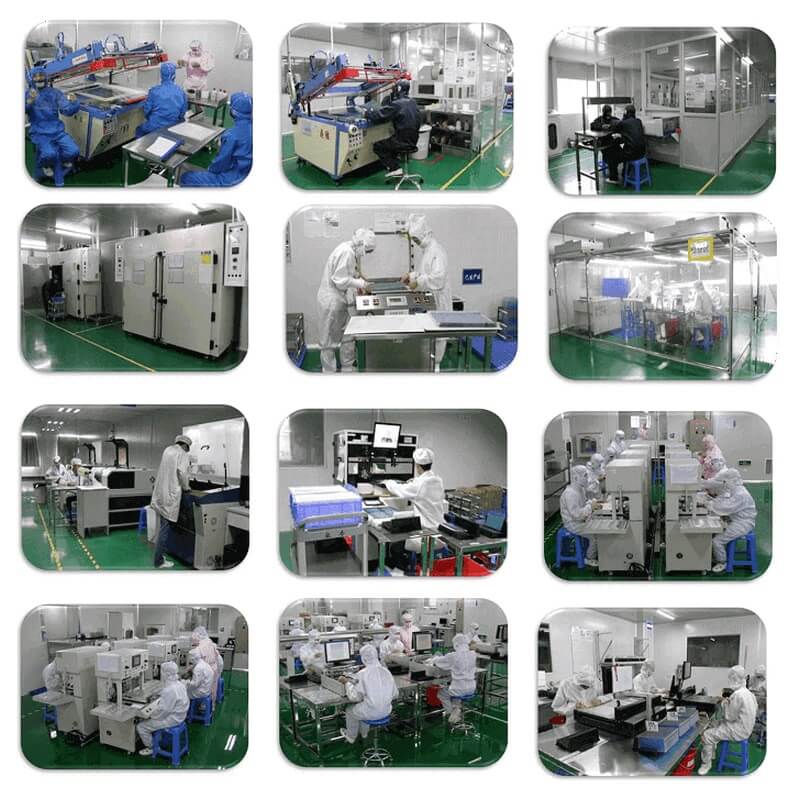
CATEGORIES
CONTACT US
Contact: Dingtouch
Phone: +8615815536116
Tel: +8615815536116
Email: sales@szdingtouch.com
Add: Building A, Bailu Plaza, No. 48, Gonghe Industrial Road, Gongle Community, Xixiang Street, Baoan District, Shenzhen,China. 518126
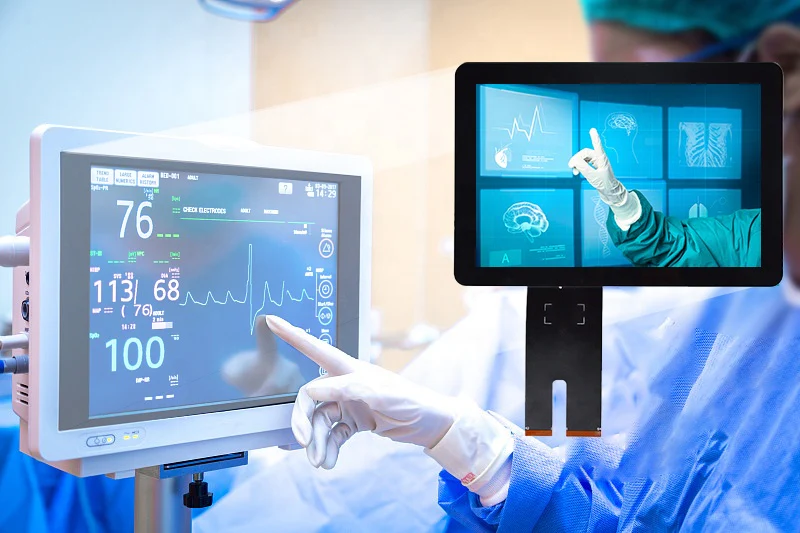
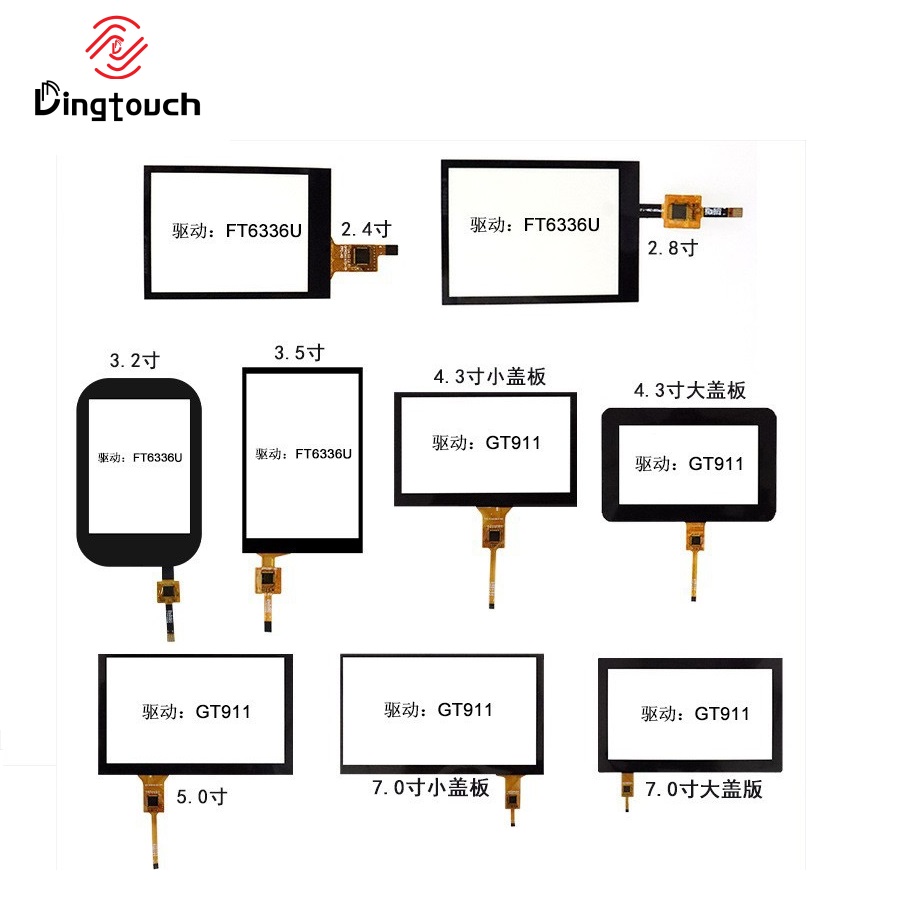




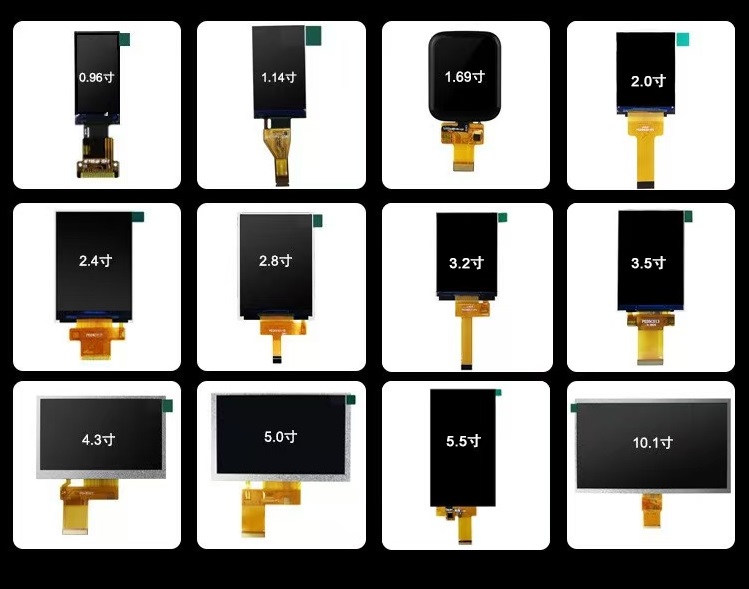
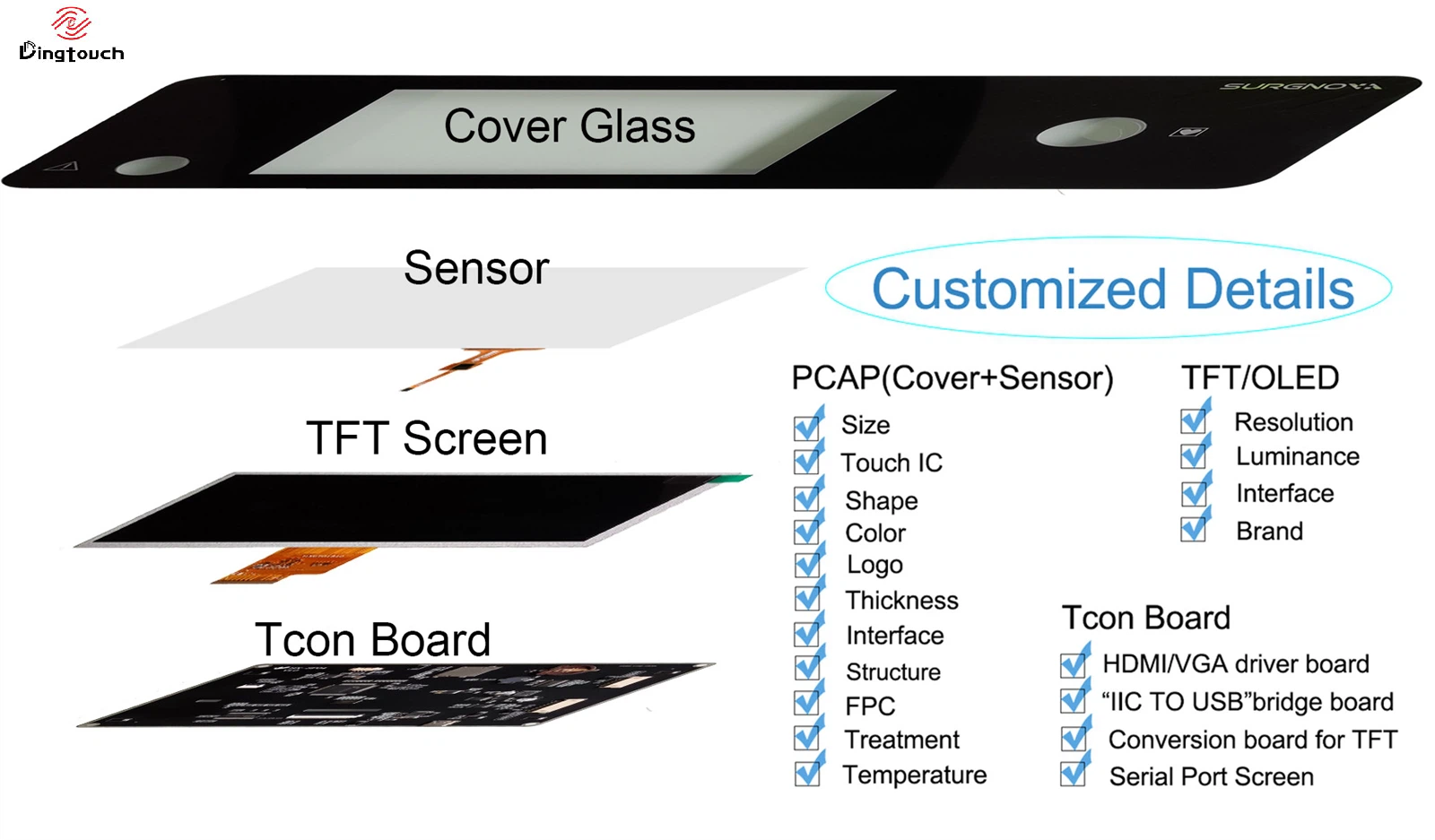
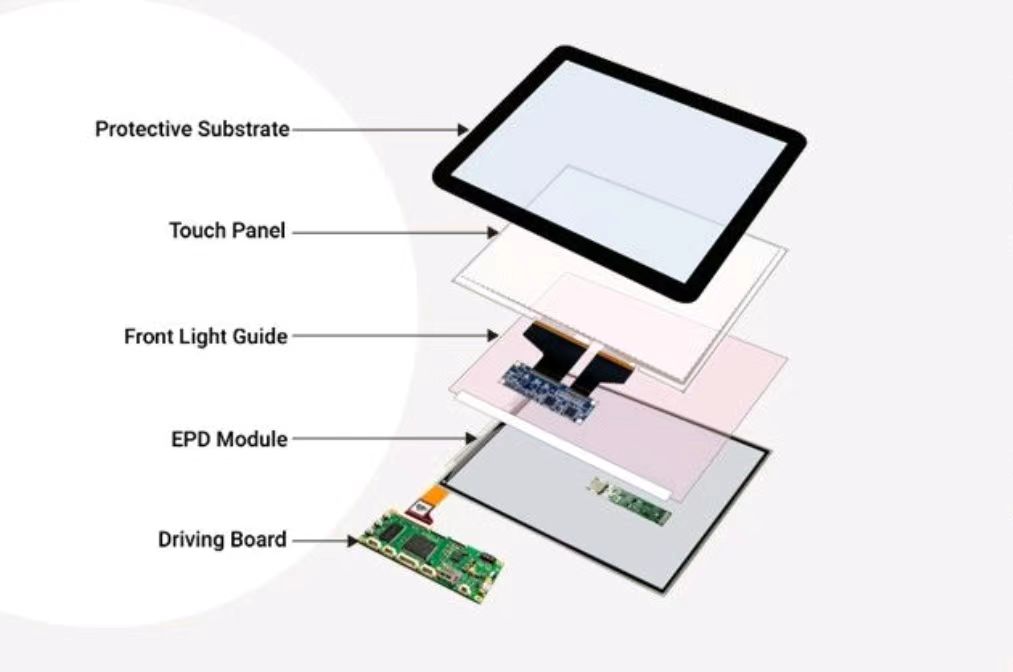
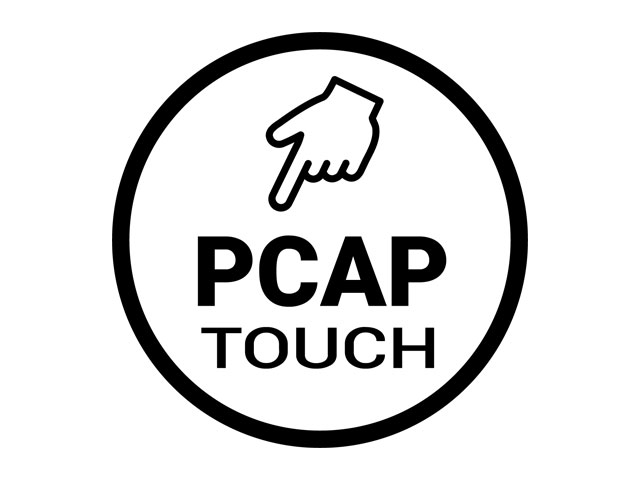

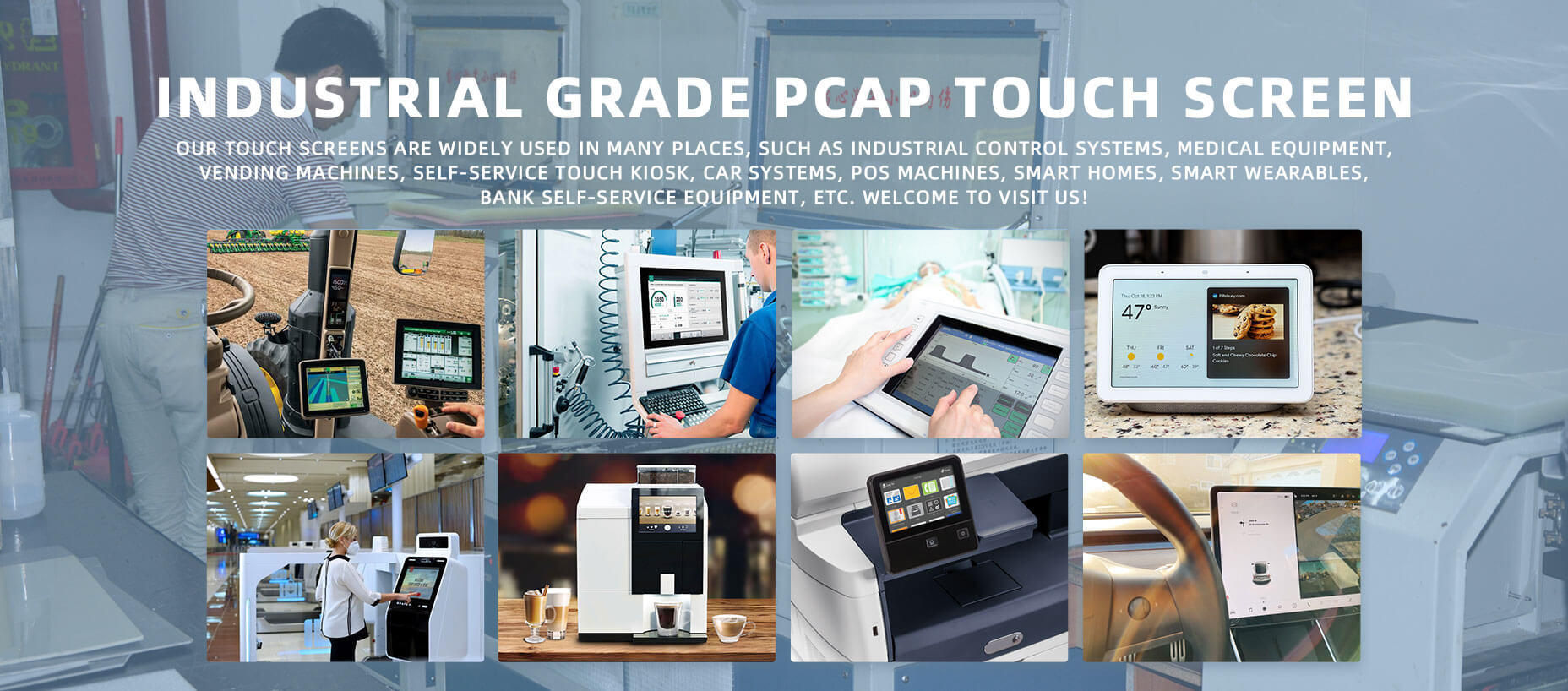
 Dingtouch
Dingtouch